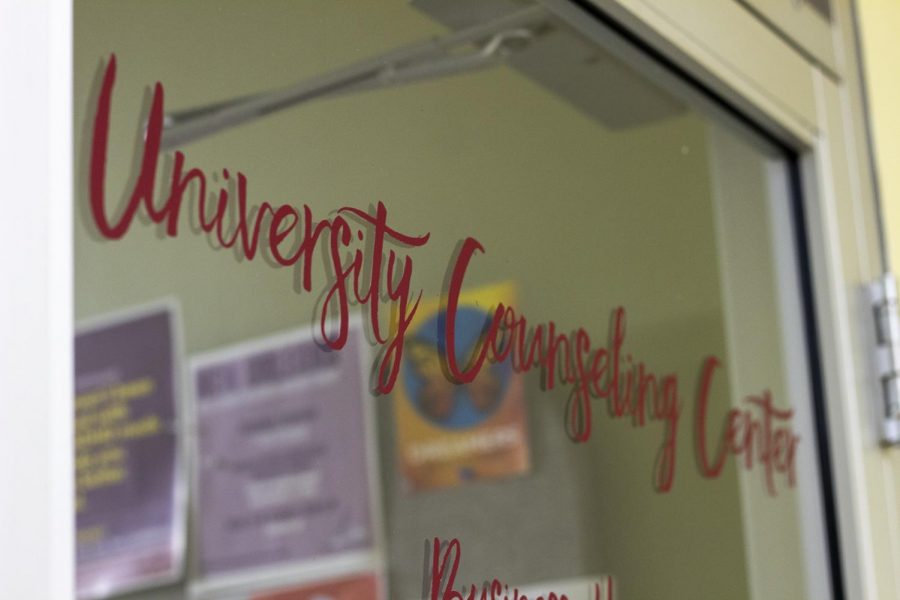Asia Wong: “Mental health should not be sacrificed to fit the new reality”
The front door of the University Counseling Center. The center is transitioning to online starting Monday, March 15 in accordance with Loyola’s precautionary COVID-19 measures. Photo credit: Cristian Orellana
April 7, 2020
COVID-19’s global takeover has shoved Loyola students into their homes in hopes of stopping the invisible enemy from spreading. But since the campus has cleared, anxiety, depression and mental illnesses have cluttered some students’ minds during self-isolation.
“Being at home has definitely taken a toll on my mindset because my workspace and relaxing area is my bedroom, and seeing the same thing all the time really breaks you down,” said journalism sophomore Arianna Blakely.
Thousands of other students like Blakely packed their spring semester in boxes to finish their courses online at home. With the sudden change, the University Counseling Center is making itself more available to remind students that they are there to help during isolation.
“It is important to stay open and curious to others and the COVID-19 crisis without assuming that everyone is processing the crisis in the same way,” said Loyola’s Director of Counseling and Health Services Asia Wong.
The counseling center is offering remote phone and video consults, case management services and live-stream anxiety workshops on Tuesdays to remain connected with students.
“I had to figure out what I was going to do with all of my things and get back to Boston, but I only had a couple of days so it was pretty stressful,” said Blakely.
Whether being at home means more self-care time or increased loneliness, no two students will cope in the exact same way, but their mental health should not be sacrificed to fit the new reality, said Wong.
“Online is a little bit of a struggle because I’m a journalism student and my classes require group work, physically being in the environment and hooking things up to people, which is not beneficial during isolation,” said Blakely.
The National Alliance on Mental Illnesses launched an online informational research guide for COVID-19 to help with coping during these unprecedented time.
The guide gives readers tips for dealing with mental illnesses during isolation, increasing anxiety and fear, and quarantining and research statistics.
“To help overcome uncertainty, normality and routine that mirrors life’s daily patterns and practices can be helpful,” according to NAMI’s research guide.
Dressing in regular work attire and taking scheduled breaks is helpful. But communicating through body language and visuals help humans function as social creatures, according to the guide.
“Using technology to stimulate [the lack of facetime] can offer a solution to bridge the gap,” the guide reads.
Blakely agreed, saying technology is a lifesaver and stress reliever that will help people figure out this strange time together.
“Social media and technology brings the community together when we can’t physically be together,” said Arianna Blakely.








